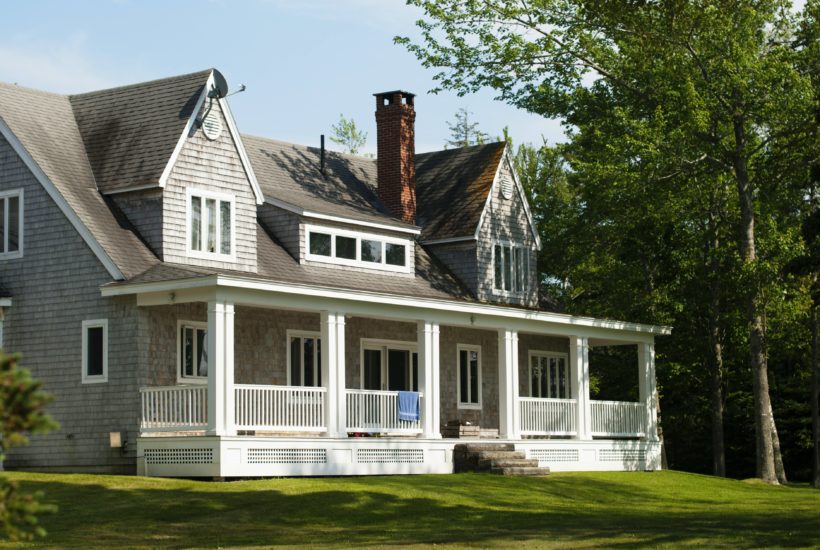Business
Is it better to own or rent a home
The argument in favor of buying a home ultimately stems from the two pronged benefit of a place to live, while also building an asset. The harshest criticism of renting revolves around the fact that tenants have a guaranteed 0% rate of return on their monthly payments, theoretically far worse than any equation that ownership could offer. This article tries to help you decide which one is better.

Often an individual’s largest purchase and proudest financial decision, home ownership have been aptly marketed as the American Dream. However, no decision is free from both pros and cons, and an arguable alternative. Prospective homebuyers should always conduct due diligence and ask the age old question, to own or to rent?
As a Certified Financial Planner, when I ask young professionals and millennials what their top goals are, where can I help, the answer consistently includes buying a home. Conversely, after twelve years in the business, I don’t think I ever heard a client list “to rent somewhere”. So out of the 136.57 million homes in the US, how come 36.6% are rented? Is it an issue of monetary limitations, or has my practice somehow missed out on all the renting fans? In the following analysis of owning versus renting, we will consider what followers of my podcast, The Kuderna Podcast, recognize as the five pillars of financial planning… 1- Protection First, 2- Liquidity, 3- Debt, 4- Building Wealth, and 5- Maximize Growth.
To Own
The argument in favor of buying a home ultimately stems from the two pronged benefit of a place to live, while also building an asset. According to the US Census Bureau, the median home price in America in 1980 was $47,200 and in March of 2020 it was $320,000. The highest median home price is found in San Jose, CA at a whopping $1.2 million. According to the Black Knight Report, real estate has appreciated at an average rate of 3.8% annually, which exceeds inflation (CPI, consumer price index, has averaged close to 3% over time). Granted that is an average, the census tables previously mentioned show that real estate values grew almost four times faster from 2000-2020 than from 1980-2000. Nevertheless, homeowners can appreciate these noticeable returns while providing a home for their families. Monthly mortgage payments can operate as a forced savings plan for retirees to someday cash out.
From a financial standpoint, not the emotional one, how efficient are those monthly mortgage payments as a savings mechanism? The first step to home ownership is the down payment, 20% down typically avoids PMI (private mortgage insurance) and offers the best options. On the median $320k home, that would be $64k cash down, a contribution towards the asset. In addition, buyers can be subject to several fees that make up closing costs, usually 2%-5%.
Assuming 3% of $320k purchase would mean an extra $9,600 at the closing table, a contribution not towards the asset. Then of course there are the monthly payments on the remaining $256,000 financed. Assuming today’s national average interest rate of 3.35% on a 30-year Fixed Mortgage on our sample home, an estimated 1% property tax rate (NJ has the highest at 2.13%, but Hawaii comes in at 0.30%), and estimated $2,400 annual homeowner’s insurance premium (figures can vary drastically based on location and other factors), the projected payment would equal $1,594 monthly. Even if we pretend the taxes and homeowner’s insurance never go up, the homeowner will end up paying $573,840 over 30 years to service the loan. So, $647,440 paid in total for the $320k property. In summary, $320k were contributed to the asset and $327,440 contributed to lender’s interest, taxes, insurance, and fees. Although in some situations, these payments can offer a variety of tax advantages via deductions for mortgage interest and/or property taxes for itemizing taxpayers.
Beyond the transaction can lie a multitude of incidental costs for home maintenance that are not included in the equation above (i.e. fixing the roof, windows, plumbing, electric, floors, etc.). Some real estate experts project costs of 1-2% annually of the home value. That could be an extra $3,200-$6,400 for upkeep on the sample house above.
On the backend, when it comes time to sell a home the closing costs are relatively low in regard to transfer taxes, recording fees, prorated taxes or insurance, etc. However, the seller is responsible for realtor commissions which often average 5% of the sale price.
To Rent
The harshest criticism of renting revolves around the fact that tenants have a guaranteed 0% rate of return on their monthly payments, theoretically far worse than any equation that ownership could offer. It is true that tenants do not build any equity and are paying their landlord’s mortgage or padding his or her bank account. However, is a 0% return always worse?
The out of pocket costs for renting are normally limited to an upfront security deposit of 1.5x the monthly rent. Considering the national average rent payment of $1,463, that would mean $2,194 cash down. Tenants are often responsible for covering utility payments, as a homeowner of course would, but are typically relieved of HOA (homeowners association) fees and any maintenance costs.
With more cash available in hand, the renter could argue their available funds might be better used elsewhere or invested at a higher rate of appreciation than that of real estate. The DJIA (Dow Jones Industrial Average) has averaged an annual return of 7.7% since 1921.
I’m fond of emphasizing that financial planning often comes down to trading big mistakes and little mistakes in an effort for the optimal strategy. I have witnessed many people make big mistakes in buying a home for one reason or another, unforeseen repairs, having to sell within five years without making a dent in the mortgage principal, change in employment leaving them unable to afford a mortgage, and more. I have only witnessed people make small mistakes in renting.
Therefore, it is critical to vet the own or rent decision through the five lenses of financial planning I endorse. Are all appropriate insurances and protection elements already in force? Can you make the necessary down payment and walk away from the closing table with an emergency fund still intact, avoiding the terrible “house rich, cash poor” scenario that that plagues many young professionals? Have high-interest debts been eliminated or will home ownership force the continued use of an overburdened credit card? Buying a house does offer the chance to live in your dream home and someday cash-out by breaking even or possibly turning a profit, but if you answered no to any of these questions, the flexibility of renting might still be the better alternative.
—
(Featured image by Aubrey Rose Odom via Unsplash)
DISCLAIMER: This article was written by a third party contributor and does not reflect the opinion of Born2Invest, its management, staff or its associates. Please review our disclaimer for more information.
This article may include forward-looking statements. These forward-looking statements generally are identified by the words “believe,” “project,” “estimate,” “become,” “plan,” “will,” and similar expressions. These forward-looking statements involve known and unknown risks as well as uncertainties, including those discussed in the following cautionary statements and elsewhere in this article and on this site. Although the Company may believe that its expectations are based on reasonable assumptions, the actual results that the Company may achieve may differ materially from any forward-looking statements, which reflect the opinions of the management of the Company only as of the date hereof. Additionally, please make sure to read these important disclosures.

-

 Markets4 days ago
Markets4 days agoCotton Market Weakens Amid Demand Concerns and Bearish Trends
-

 Crypto2 weeks ago
Crypto2 weeks agoIs Strategy’s Bitcoin Bet Becoming a Dangerous House of Cards?
-

 Fintech1 day ago
Fintech1 day agoFintech Alliances and AI Expand Small-Business Lending Worldwide
-

 Crowdfunding1 week ago
Crowdfunding1 week agoSpain’s Real Estate Crowdfunding Boom: Opportunity, Access, and Hidden Risks
























